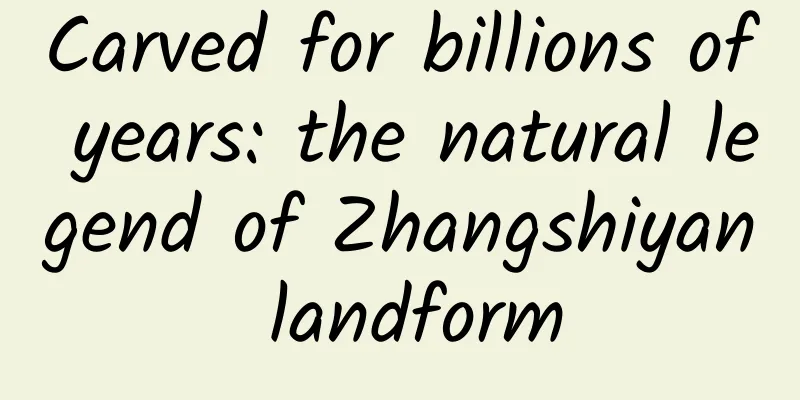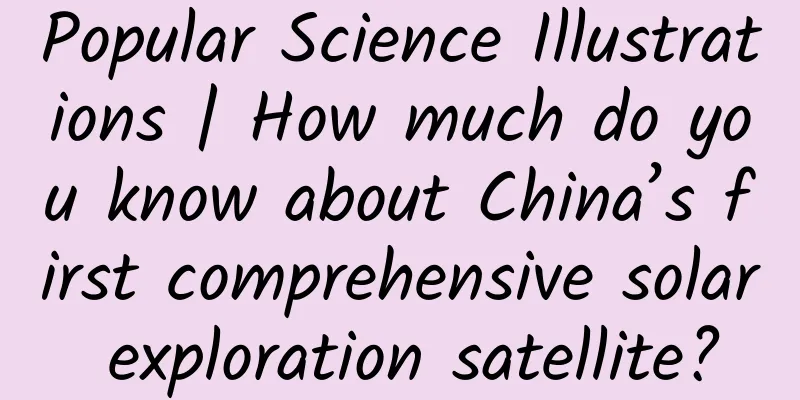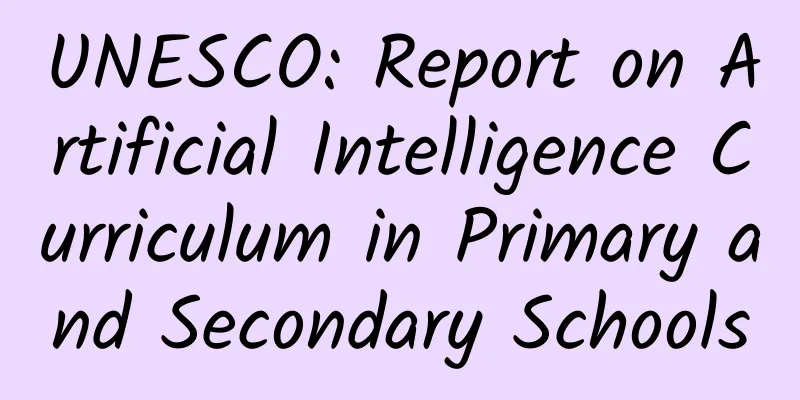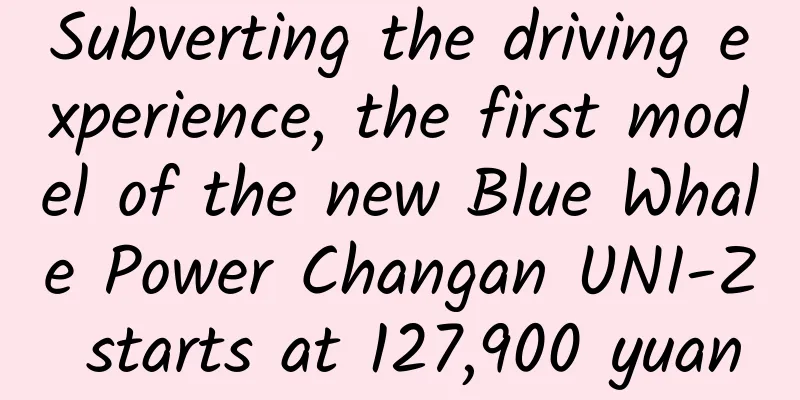Is our love of drinking determined by our genes?
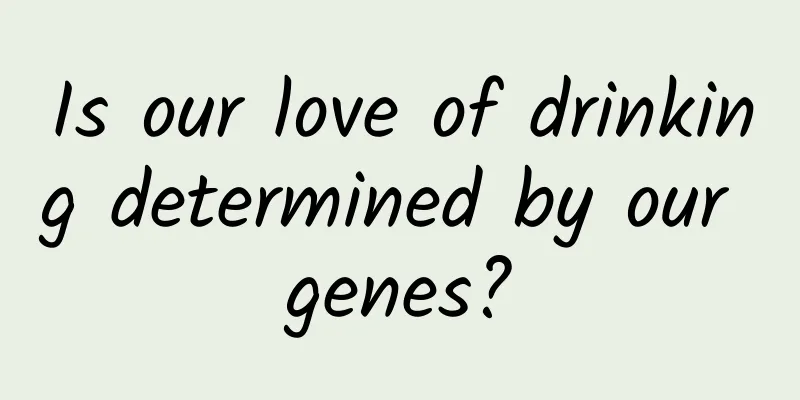
|
Leviathan Press: Both the United States and the Soviet Union have had astronauts secretly drinking in outer space. This is not surprising. If you are being propelled away from the earth by a rocket at several times the speed of sound and into the unknown, vast black void, it is hard not to want to calm your nerves (and perhaps help you feel more excited). This is history, and it may also be the future (although I don’t know if it’s a good thing): the last wave of interstellar immigrants will leave all the pubs and breweries on Earth to elephants and monkeys, and then, while watching the Earth go away from the window of the space capsule, they will hold their glasses in hand and drunkenly drive towards the sea of stars. But where should we go? 26,000 light-years away from Earth, there is a huge paradise - the Sagittarius B2 Nebula. It is 150 light-years wide and has a mass 3 million times that of the sun. Its territory is so vast that it is beyond imagination. Most importantly, there is a trillion trillion liters of alcohol suspended in it. Scientists guess that it is raspberry-flavored and tastes a bit like rum. That sounds good. South African elephants eating marula fruit. © nytimes Elephants living in the South African savannah may be the happiest elephants in the world, because there are a lot of marula trees there. The trees are tall, lush, and their fruits are rich in sugar. When they fall to the ground after ripening, they will ferment into alcohol, which makes the greedy South African elephants fascinated. For this reason, the Marula fruit is also called the elephant fruit, and the wine made from this fruit is logically called elephant wine. It is said that elephants that eat (drink) too much under the tree will stagger around the tree, with a spirit of "I get drunk when I see wine, you know who I am". If there are not enough fruits on the ground, they will use their huge bodies to hit the tree in the hope of dropping more. Alcohol and drinkers actually appeared long before humans were born. More than 4 billion years ago, single-celled prokaryotes roamed in the ancient ocean, gathering and dispersing, eating and metabolizing - metabolites included carbon dioxide and ethanol - in short, excreting sparkling wine. View of an elephant who is said to be drunk. © hurriyet Alcohol is a natural product, so it's not surprising that elephants take the initiative to drink alcohol. And it probably won't surprise you that monkeys, also primates, love to drink. Saint Kitts in the Caribbean is a well-known tourist destination. It is rich in sugarcane, but originally there were no long-tailed monkeys. More than 300 years ago, the suffering West African slaves were dragged to the island to work in the winery, and the long-tailed monkeys that had been living in Africa were also brought to the island by them. The clever monkeys soon discovered that the island's sugar cane was a constant source of happiness. Once the sugar cane was ripe or burnt, they would pounce on it to get the fermented alcohol. To this day, they have long been accustomed to stealing alcohol from tourists' cocktail glasses. Watching monkeys drinking has almost become an iconic viewing attraction on the island - as long as the wine they are drinking is from someone else's glass. In response to this habit, the locals would put rum and molasses in coconut shells as bait, and then catch the monkeys easily after they were drunk. The same method of catching monkeys was also recorded in the book "Guo Shi Bu" written by Li Zhao in the Tang Dynasty. Human compatriots in Southeast Asia and Africa also have similar skills. The methods are similar, but the places and the wine are different. A true story of a long-tailed monkey stealing alcohol from St. Kitts. © alshar In comparison, the monkeys in Hainan seem to be much more strong-willed. Although they also love to drink, they do not steal or rob, and they produce and sell their own wine. Li Diaoyuan, a scholar in the Qing Dynasty, once wrote: "There are many monkeys in Qiongzhou... I once found monkey wine deep in the rocks. Monkey wine is made from rice and flowers. One hundred and sixty-five liters is about one hundred and sixty-five liters. It tastes very spicy, but it is very rare." Similar things have been found in Huangshan, Guangxi and other places. Smart monkeys will hide the uneaten flowers and fruits in the cracks of rocks, and over time they will ferment into natural fruit wine. The "monkey wine" is so rich that even the hero Linghu Chong is willing to cheat with his cleverness. But it is unknown whether the monkeys deliberately brew wine for drinking, so the "self-production and self-sale" mentioned above may not be accurate. Of course, it is not impossible. * * * There are other animals that drink, too, and the idea of “all animals drinking together” is truly fascinating. But unlike most other animals, humans are distinctly social and rely on connections to maintain group homeostasis. Our ancestors hunted together, lived in groups, and shared living materials. This gives human drinking behavior more emotional color. What could be more true than sharing a bottle of wine? 400,000 years ago, when our ancestors learned to harness the power of fire, they were able to shift much of their foraging and other necessary economic activities to the daytime, because the night was more suitable for sitting around a campfire and chatting, and then maybe having some fermented fruit, and then... © descopera Compared to other animals, humans are born with the ability and good at drinking, and their drinking capacity is almost unrivaled among all mammals - but it is best not to compete with the pen-tailed tree shrews in Malaysia, otherwise you will challenge their profession with your interest. These guys survive on fermented palm nectar (with a maximum alcohol concentration of 3.8%) and drink thousands of cups a day without changing their faces. The reason why the pen-tailed tree shrew is so good at drinking is all due to millions of years of natural selection. The same is true for humans. When our ancestors came down from the trees 10 million years ago, something unexpected happened quietly. Scientists aren't sure why our ancestors came down from the trees, but one guess is that it was to eat the rotten fruit that had fallen to the ground. Overripe fruit would have given off an alluring aroma, suggesting more sugar and alcohol - up to 8% alcohol by volume. These alcohols had a significant positive impact because their smell could travel far, allowing our primate ancestors to find food easily. This is the "drunken monkey hypothesis" proposed by biologist Robert Dudley. © pressone In addition, alcohol also produces a magical "aperitif effect", that is, the smell of alcohol makes us want to eat more. Why do you always have the habit of eating some snacks when drinking, or always want to eat skewers and noodles after drinking? This is not without reason. Alcohol stimulates the agouti-related peptide neurons (Agrp, although I don't know what that is) in the hypothalamus of the brain, which keeps you hungry. The aperitif effect also has a profound evolutionary significance - alcohol can help our primate ancestors who drank too much take in more energy, so it is a wise choice to eat a full meal before going back to the tree to sleep. The next meal may be snatched from the mouth of a saber-toothed tiger. The beauty of the drunken monkey hypothesis is that it tells us that humans love drinking because it is set by evolution, and the pleasure brought by alcohol is a reward for the calories we take in. We share alcohol with others because if we drink too much alone, we are more vulnerable to predators, but we are safer in a group. Our gregarious nature makes us drink, and drinking together makes us inseparable. But the drunken monkey hypothesis only explains why humans love to drink, and does not explain why we can drink so much - if we have not evolved the corresponding alcohol processing mechanism in our bodies, drinking a lot will only be a waste. This is about the fourth group of alcohol dehydrogenase ADH4 in the genome (again, I don't know what this is). Ten million years ago, this gene fragment in our ancestors mutated, which directly increased the alcohol metabolism rate by nearly 40 times, allowing them to successfully digest the alcohol in rotten fruits and continue to forage or rest in trees when other apes were drunk. * * * (The existence of wine) proves that God loves the world and likes to see us happy. —Benjamin Franklin It is hard to say whether modern people have improved their drinking capacity after such a long period of evolution. However, primitive people could not understand why rotten fruit made them feel good, and modern people have made great progress in this regard. The molecular formula of alcohol is very simple (see the figure below) - but this simple molecule has extremely complex effects on the person who consumes it. After spending an entire afternoon reading articles related to the neurobiology of alcohol and learning about about 50 neural mechanisms triggered by alcohol, I felt an urgent need to have a drink first. © wiki We drink because we are stressed and anxious. This is because alcohol can stimulate our brain to produce more gamma-aminobutyric acid (GABA), a common neurodepressant in the brain, which has a similar effect to the sedatives prescribed by doctors, making people relax. If you stumble and walk unsteadily after drinking, it's because there is too much of this stuff in your brain. On the contrary, the level of glutamate in the brain will decrease with alcohol intake. This is a neurostimulant that helps you maintain rationality. The reason why you are honest and speak your mind after drinking is because alcohol reduces the level of glutamate in the brain. However, this will also release the little devil in your heart, making it more difficult to control yourself (but please don’t blame alcohol for your lack of moral integrity after drinking. To paraphrase a recent saying, I have never seen a subordinate beat up his boss after drinking too much) - while rationality based on etiquette, logic, and norms can only stand by and watch. This is also a scientific explanation for "telling the truth after drinking." When faced with a major decision, the ancient Persians needed to make two serious discussions and decisions: one when they were sober, and one when they were drunk. The former was the result of rational thinking, while the latter was based on the honesty and most essential needs revealed by alcohol. When the conclusions of the two decisions were the same, action could be taken. We also drink alcohol for happiness because alcohol causes the brain to release more dopamine and endorphin. The former is well-known for its good reputation, while the latter makes people feel happy and is a serious "source of happiness". But don't drink too much. We are all adults. * * * We can’t allow our spirits to succumb to sorrow…the best resistance is to make lots of wine and drink it. —Alcaeus, ancient Greek poet But I have to admit that sometimes it is not that I want to drink too much, but that I have to drink in order to survive. I am not talking about the helplessness of drinking at the workplace, but the helplessness of the British in the Middle Ages. If they don't drink, they will really die. In the Middle Ages, the British drank a lot of alcohol, even women and children who were not allowed to drink alcohol for a long time in civilization history. It was not because the British loved to drink, but mainly because the water was deadly at that time. Drunken monks in a medieval monastery brewery, painted by Joseph Haier in 1873. © wiki If medieval Englishmen wanted a constant supply of fresh, drinkable water, they would have needed either wells or aqueducts, but these required an effective social division of labor, responsible government structures, and other things that the Middle Ages lacked. If the populace did not drink alcohol, they had to drink muddy streams filled with bugs, leeches, and rotten leaves. Therefore, Ælfric, an abbot of a monastery in England, made the following law: if there is ale (actually ale), drink ale; if not, drink water. Drink for health, drink for survival. Wine, as a substitute for drinking water, has sustained human survival and saved many people. This is not a joke, but real history - the ancient Egyptians also had similar experiences in this regard. The story goes like this. It is said that a long time ago, the supreme god of ancient Egypt, the sun god "Rah", was furious because of human disrespect, and sent the goddess Hathor with a lion's head and a human body to kill all humans. The world was filled with wailing and blood flowed like a river. After Ra's anger subsided, he decided to let humans go. But Hathor was already killing madly at this time. No matter whether you were Doremi or Ra, no one could say anything. She continued to kill people. Lafang realized that the situation was out of control, so he quickly brewed 7,000 barrels of beer, dyed it red, and scattered it on the world. Hathor thought it was human blood and kept drinking it until she became drowsy, and then she stopped the killing, and humans survived. Therefore, in ancient Egyptian mythology, it was alcohol that saved mankind. In order to commemorate the life-saving grace of alcohol, the ancient Egyptians held a drunken festival every year, reveling in the hope of communicating with the gods. As American philosopher William James wrote in his analysis of the mystery of religion: "Drunkenness is part of the deeper mystery and tragedy of life... The consciousness of drunkenness is a small part of the mysterious consciousness, and our feelings about drunkenness will also find their place in the greater overall feeling of mystery." In ancient Egypt, it was strange not to drink. It meant you were rejecting the gods. In ancient Egypt, drinking until you vomited was considered polite. They even added emetic herbs to the wine. Pictured is a detail of a mural in the tomb of Pharaoh Neferhotep, with a servant holding a wine cup on the left and a woman on the right who had obviously drunk a lot. © Ryan Pope Humans are very strange creatures. They offer wine to their ancestors, to the gods, and to themselves in the hope of establishing or maintaining a connection with these spirits. Wine brings people far more than just the happiness of being drunk. For modern urbanites, how to drink and use wine is an important social practice course. In this regard, we might as well learn more from the ancients. During the Han Dynasty, there was a prime minister named Cao Shen, who advocated governing by inaction. When someone came to his house to persuade him to work hard, Cao Shen would always invite him to drink before the other person asked, and the other person could not refuse out of politeness. When he was about to say something after drinking, the prime minister's second glass of wine had already been poured. After this cup, there is another cup; after this cup, there is another cup. They kept drinking until the other party had forgotten what they were here for and started talking nonsense. According to the "Book of Han", the prime minister Cao would take them to visit the garden and sing songs to entertain them. Soon, Cao Xiangguo's subordinates also began to imitate their leader's style of using alcohol to get out of trouble. Someone privately told Cao Xiangguo about this situation, and he quickly asked his subordinates to drink together... * * * Every era, every place, and every person has different ways of drinking wine and countless stories to tell. Sometimes, drinking is to feel less. Friends leave, love fades, drinking makes one feel empty and makes one's heart ache. It is both an emotional outlet for "living like this for thirty years" and a performance to cheer for "the collapse of the building". But sometimes, we drink to feel more. There is a subtle truth in the muddy wine, and being unrestrained has nothing to do with the body. As the cheapest mood regulator, alcohol is a catalyst for connecting with others and a handshake with yourself. Respect the impermanence of human joys and sorrows, and respect the eternal changes of heaven and earth. By Tim Proofreading/Rabbit's Light Footsteps This article is based on the Creative Commons License (BY-NC) and is published by Tim on Leviathan The article only reflects the author's views and does not necessarily represent the position of Leviathan |
>>: Can sitting on a hot stone block cure menstrual cramps? According to the doctor...
Recommend
Father’s Day Marketing Promotion: How Can Brands Break Through and Win?
Introduction: As an important festival IP, it is ...
Top physicists will discuss the future of quantum at the birthplace of quantum mechanics
2025 was declared the "International Year of...
Case analysis: Taojiji’s price-bargaining campaign to attract new customers
Recently, some groups have been forwarding a mess...
How did the 2022 Jilin epidemic happen? What exactly caused it? Attached are the detailed reasons!
Recently, the number of local confirmed cases rep...
Volkswagen CEO opens Twitter account, the first thing he does is to challenge Tesla's Musk
In the past 2020, American electric vehicle manuf...
In just one year, H5 has become like this
Regarding the development of H5, I would like to ...
Baidu promotion information flow advertising window style!
Information flow advertising style - window style...
Ten thousand words long article: Hand in hand teaching you how to play with private domain traffic
There are many articles discussing the concept of...
Nexus 6 battery exploded
It is not uncommon for mobile phone batteries to ...
Urgent reminder! Don’t wear yellow or green clothes when going out!
Since the spring In addition to the flying catkin...
Captain Da Shanzhaowan's Notes | Deep Sea Part 1
Big Sea The earth is the mother of mankind. She n...
Four ways to attract traffic to Zhihu in 2019!
Now more and more people trust Zhihu and not Baid...
《PIMP Core Notes》Dating Course for Boys
Introduction to the content of the training course...
Rules for Creating Brand Hot Products in 2022
In a homogeneous market, how can brands find diff...
Humans learn throughout their lives, but the brain can only store 4GB?
In life, we often hear an inspiring saying, "...
